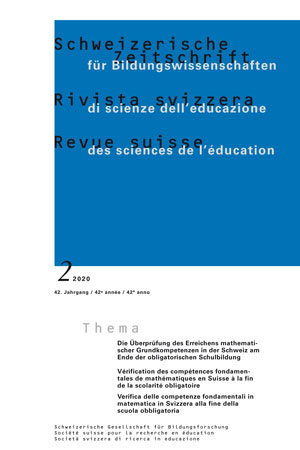Le rapport entre la motivation des élèves et leurs performances en mathématique dans la vérification de l’atteinte des compétences fondamentales (COFO) 2016
DOI :
https://doi.org/10.24452/sjer.42.2.7Mots-clés :
Performances en mathématique, motivation, conception de soi, autoperception de l’efficacité personnelle, modèle d’expectation-valeurRésumé
Basé sur le modèle d’expectation-valeur (Eccles et al., 1983) la relation entre les variables motivationnelles et les résultats en mathématique chez N = 11’131 élèves est examinée à la fin de la scolarité obligatoire au moyen des données suisses de COFO 2016. Les résultats confirment la valeur prédictive élevée de la focalisation sur l’objectif de la formation, de la conception de soi et de l’autoperception de l’efficacité personnelle pour la réussite en mathématique. Les différences de genre, telles que la conception de soi en mathématique nettement inférieure des filles (N = 5’423) malgré des performances comparables à celles des garçons (N = 5’708), peuvent être différenciées par un recensement multidimensionnel de l’autoperception de l’efficacité personnelle en mathématiques, par exemple en situant des différences significatives en mathématiques appliquées, mais pas en algèbre. Il existe également des différences entre les sexes en ce qui concerne la focalisation sur les objectifs de formation : les garçons obtiennent des résultats plus élevés que les filles pour tous les aspects ; cependant, les effets sont plus faibles que dans la plupart des échelles d’attente d’auto-efficacité.



